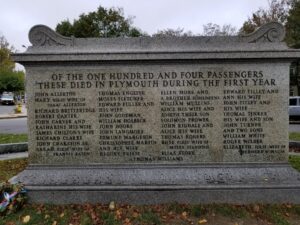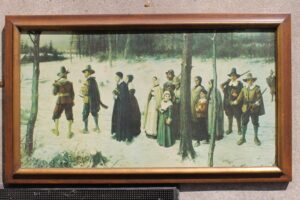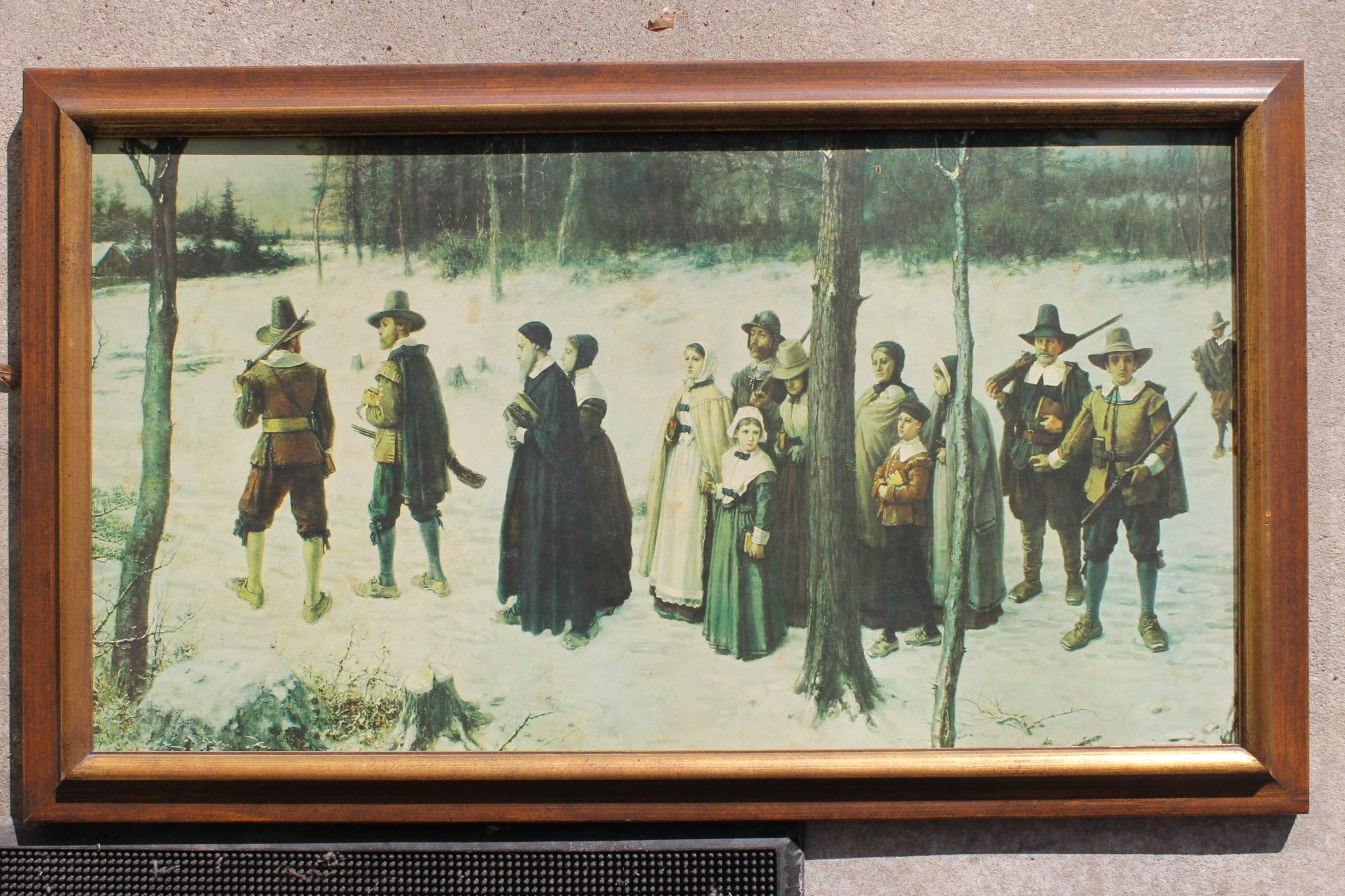

Thoughts on Thanksgiving
By Seth Grossman
As a Jewish kid growing up in Atlantic City in the 1950s, Thanksgiving was an important and memorable American experience.
It began in my elementary school at Richmond Avenue, weeks before the holiday. Our crayon and construction paper portrayals of Pilgrims and Indians decorated our classrooms and hallways. The song “Over the River and Through the Wood” made us look forward to a feast with grandparents and cousins on Thanksgiving – including pumpkin pie.
We learned the traditional Thanksgiving story. The Pilgrims left comfortable homes in England, so they could be free to worship God as they wanted. They spent two months on a slow, overcrowded ship called the Mayflower. Half died from cold and hunger that winter. They were saved by an Indian named Squanto (Tisquantum) who taught them how to grow their own food.
After months of hard work, the Pilgrims had a bountiful harvest. They and the Indians held a Thanksgiving feast. They thanked God for giving them a good life in this new land of America.
At school assemblies, we sang their old Protestant hymn, “We Gather Together to Ask the Lord’s Blessing.”
The Thanksgiving we learned in school fit perfectly with the dinner our family had at home. Our whole family helped ourselves to generous portions of turkey, mashed potatoes, stuffing, green beans, and pumpkin pie. We shared stories of what everyone in the family was doing. However, at some point, someone would always mention how lucky our family was to be in America.
Now and then, I would hear stories of when our family lived on beets, kasha, and boiled potatoes in the Old Country. I would hear of relatives being randomly beaten and killed there simply because they were Jews.
My grandparents laughed at how they struggled as “greenhorns” in America. They didn’t speak the language. They faced discrimination. They worked twice as hard and twice as long to earn the same money as others.
However, they were not angry or bitter. They explained how they overcame these obstacles. They were happy to see their children and grandchildren enjoy a better and easier life. They often said that our family could never be as safe, comfortable, and successful anywhere else in the world.
When I got older, I often talked to my parents and grandparents about when they were growing up. They described their elementary schools of the early 1900’s and 1920’s and 1930’s as being virtually identical to the Atlantic City schools I went to in the 1950’s.
Like most Americans for more than a hundred years, we learned the same history, made the same drawings and decorations and sang the same songs for Thanksgiving. We ate the same food and shared the same traditions for dinner. We all loved America and were proud and happy to be here.
That entire world vanished in the last fifty years. The America and Thanksgiving I grew up with seem like part of an alien culture on some distant planet to my children and grandchildren.
Since the 1960s, our schools and Hollywood pop culture portrayed the Pilgrims and all Europeans as bullies with guns who murdered and robbed and brought nothing but violence to America.
Parents and grandparents today rarely tell their children and grandchildren how good America was to them and their parents. They know it may provoke an unnecessary argument. Besides, most adults today are often too busy and stressed making ends meet to think much about the holiday.
Far too many parents and grandparents seem to spend most of Thanksgiving watching football on TV and rushing out for the latest pre-Christmas sales. Many children and grandchildren spend most of their Thanksgiving dinner staring at their phones and texting and sharing social media posts with friends at other dinners.
Here are some thoughts on how we might to change this.
1. At least once during Thanksgiving, tell your children and grandchildren how much you love them. Then tell them how you wish they could live in an America that is as safe, comfortable, and prosperous as the America we grew up in. It may uncomfortable. You will not undo years of indoctrination with a single conversation. However, it is important to suggest that they doubt and question what they are told in school and on TV. It is the first step in getting them to think for themselves.
2. Tell you children to Google “Squanto.” Squanto was an English-speaking Indian who miraculously walked out of the woods and taught the Pilgrims how to grow corn and squash, and where to catch fish. When they read that remarkable story, they will also learn that most Indians who lived in Massachusetts died from disease long before the Pilgrims arrived. They will learn how Squanto’s disease-weakened tribe was threatened by other Indian tribes who were brutal and aggressive.
3. Also tell your children to Google “Pilgrims Socialism.” Despite Squanto’s help, the Pilgrims barely produced enough food to survive during the first two years. That was because they ran their settlement as a socialist commune. There was no privately-owned land. Everyone worked commonly-owned fields together. Everything produced was put into a common storehouse, and given out based on need.
William Bradford, the colony’s governor, explained the problem in his journal.
“Young men resented working for the benefit of other men’s wives and children without compensation. Healthy men who worked thought it unjust that they received no more food than weak men who could not. Wives resented doing household chores for other men, considering it a kind of slavery”.
To fix these problems, the Pilgrims got rid of socialism in their third year. Governor Bradford’s journal continued:
“At length, after much debate of things, the Governor (with the advice of the chiefest amongst them) gave way that they should set corn…And so assigned to every family a parcel of land.”
The colonists, each of whom now had to grow their own food, suddenly became very industrious, with women and children who earlier claimed weakness now going into the fields to plant corn. Three times the amount of corn was planted that year under the new system.
After getting rid of socialism, the Pilgrims traded their surplus food for furs from the Indians, which they then traded for luxury goods from Europe and the West Indies. Only then did they live the American dream and have plenty to be thankful for.
Seth Grossman is a Somers Point attorney and executive director of LibertyAndProsperity.org. The organization maintains a Liberty and Prosperity Facebook page. It meets for breakfast 9:30 am every Saturday at the Shore Diner in Egg Harbor Township by Parkway Exit 36. Seth Grossman can be reached at info@libertyandprosperity.org.






